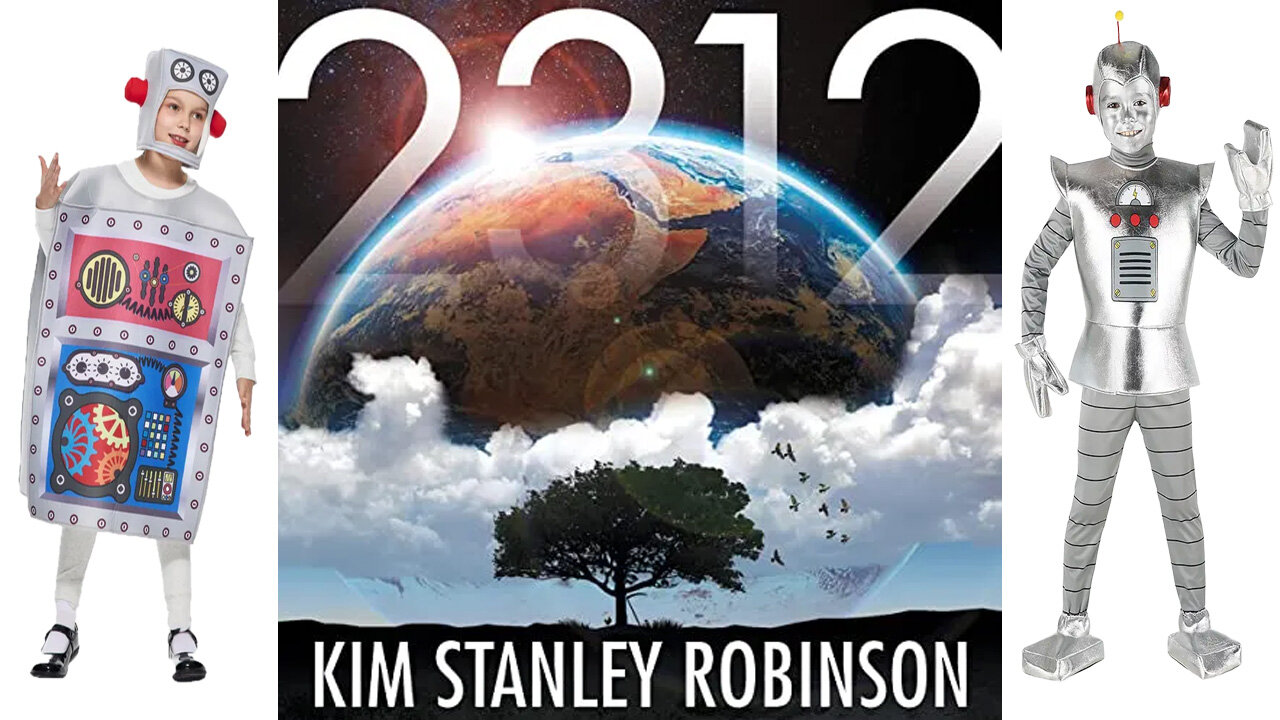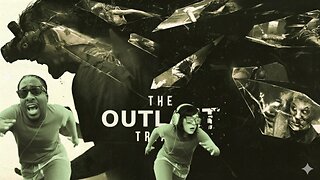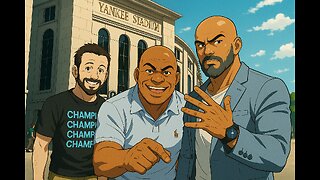Premium Only Content

'2312' (1972) by Kim Stanley Robinson
Kim Stanley Robinson’s '2312' (1972) is a vast, visionary work of speculative fiction that extends his lifelong project of exploring humanity’s relationship with nature, technology, and the moral obligations of progress. Set in the 24th century, the novel imagines a solar system teeming with life — not biological, but human, cultural, and mechanical — spread across planets, moons, and orbital habitats. Like much of Robinson’s writing, '2312' operates on multiple levels: it is a love story, a political thriller, a meditation on ecological responsibility, and an ambitious act of world-building grounded in rigorous scientific plausibility.
At its centre are two contrasting figures: Swan Er Hong, an artist, adventurer, and sometime terraformer from Mercury, and Wahram, a diplomat from Titan. Their relationship, framed by the mysterious death of Swan’s grandmother and the unraveling of a solar-system-wide conspiracy, provides the novel’s emotional and narrative spine. Yet '2312' is less a story about individual characters than about the civilization they inhabit — a post-scarcity human diaspora grappling with the lingering inequities, environmental damage, and political fragmentation inherited from earlier centuries. Robinson uses Swan and Wahram’s journey as a thread linking an astonishing variety of environments: Mercury’s moving city, Venus’s floating habitats, Mars’s restored canals, and the Earth itself, now battered by climate collapse but slowly recovering.
Stylistically, '2312' is both dense and poetic. Robinson intersperses traditional prose chapters with excerpts, lists, scientific extracts, and fragments of future history — a technique reminiscent of John Dos Passos’s U.S.A. Trilogy and the collage structures of modernist literature. These interludes expand the novel’s scope, giving readers glimpses into the mechanics of space habitats, the evolution of artificial intelligence, and the new social configurations of a multi-planetary species. Far from being distractions, these sections deepen the sense of immersion and suggest that the true protagonist of the novel is human civilization itself, examined with anthropological and ecological precision.
One of the most striking aspects of '2312' is its moral and philosophical vision. Robinson’s future is not utopian, but neither is it dystopian. Humanity has spread beyond Earth, but it has brought its old dilemmas with it: inequality, exploitation, and the tension between freedom and collective responsibility. The novel’s title year — '2312' — evokes both progress and repetition, a reminder that technological advancement alone does not guarantee moral evolution. Through characters like Swan, who pushes the boundaries of identity through genetic and cybernetic modification, and Wahram, who embodies patience and compassion, Robinson dramatizes the ongoing negotiation between individual autonomy and the needs of the whole.
Underlying everything is the theme of ecology, a preoccupation that runs through all of Robinson’s work. Even amid the dazzling technological achievements of this future, the environment — terrestrial and extraterrestrial — remains fragile. The planetary terraforming projects, while grand, raise ethical questions about the human impulse to remake nature in its own image. The Earth, still suffering from the consequences of climate change centuries after the fact, stands as both a warning and a symbol of hope. Robinson’s message is clear: the survival of humanity depends not merely on colonizing new worlds but on learning to live sustainably, wherever it dwells.
Critics sometimes note that '2312' lacks conventional drama, and it’s true that Robinson’s narrative often favors reflection over action. Yet this is part of its achievement. The novel’s grandeur lies in its scope and texture — the way it treats science, politics, and love with equal seriousness. It’s a book less about what happens than about what it means to inhabit a future shaped by both wonder and consequence. Robinson invites readers to consider how art, emotion, and ethics will endure in a universe where humanity has become both creator and caretaker on a cosmic scale.
Ultimately, '2312' is a monumental synthesis of ideas — part science fiction, part ecological treatise, part philosophical romance. It celebrates human creativity while warning against its excesses, and it insists that even in the most advanced technological age, compassion and stewardship remain our highest forms of intelligence. In scope, ambition, and moral depth, '2312' stands as one of Robinson’s finest works: a mirror of the future that reflects, with luminous precision, the dilemmas of our present.
-
 LIVE
LIVE
CassaiyanGaming
3 hours ago🟢LIVE - The OUTLAST Trials with JahBless & CatDog
158 watching -
 10:54
10:54
Nate The Lawyer
2 days ago $1.20 earnedNEW Charges & Lawsuit For Fake Doctor Illegal Who Ran Schools For Decades
34.1K29 -
 2:34:44
2:34:44
Joker Effect
3 hours agoSTREAMER NEWS: Adin Ross, LupLupka, SideScrollers, N3on, TrainwrecksTv, Cuffem, WestCol, BottedWTF.
11.8K6 -
 3:04:40
3:04:40
IsaiahLCarter
1 day ago $0.18 earnedWill New York City Choose Communism? || APOSTATE RADIO 032 (with John D. Macari)
22.9K9 -
 2:31:41
2:31:41
Illyes Jr Gaming
6 hours agoRetro Sports Game Night NHL 94
6.73K3 -
 1:22:31
1:22:31
HELMETFIRE
3 hours ago🟢GAMING WITH FIRE EP14🟢
4.45K8 -
 1:46:04
1:46:04
Damysus Gaming
3 hours agoBorderlands 4 -UVH Grinding and Farming With Amon
3.3K3 -
 25:47
25:47
Robbi On The Record
6 hours ago $0.06 earnedExposing the OnlyFans Industry (Agency Edition)
13.7K5 -
 3:53:36
3:53:36
ManoloCalifas
5 hours ago🔴 LIVE - BATTLEFIELD 6 ON A SUNDAY....
1.39K -
 9:06
9:06
MattMorseTV
8 hours ago $0.21 earnedSchumer just BETRAYED 32 million of his OWN VOTERS.
19.5K56